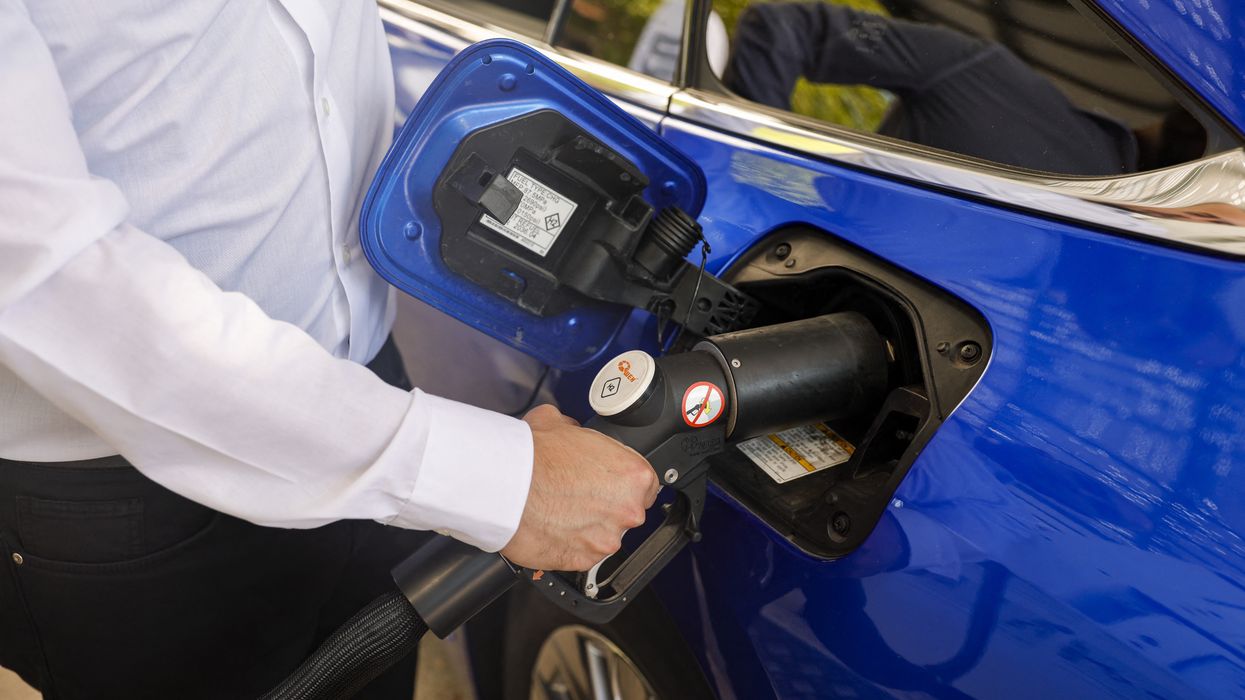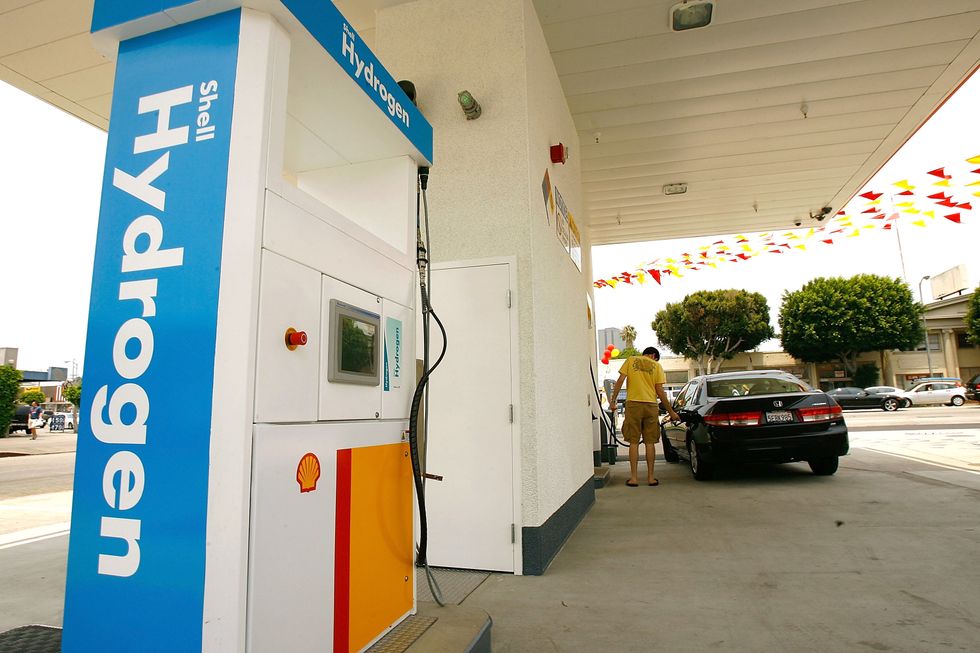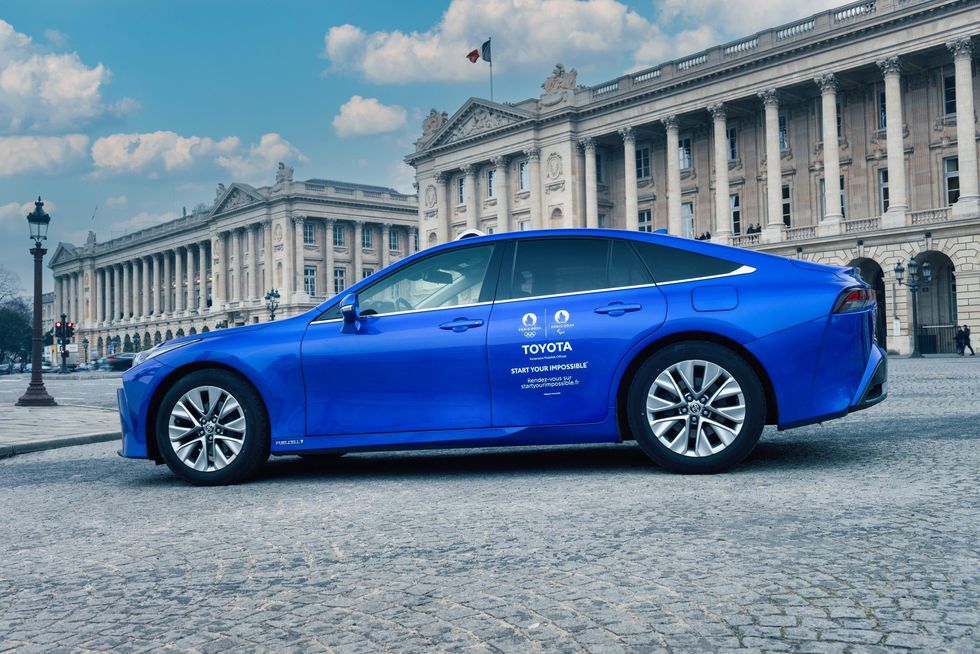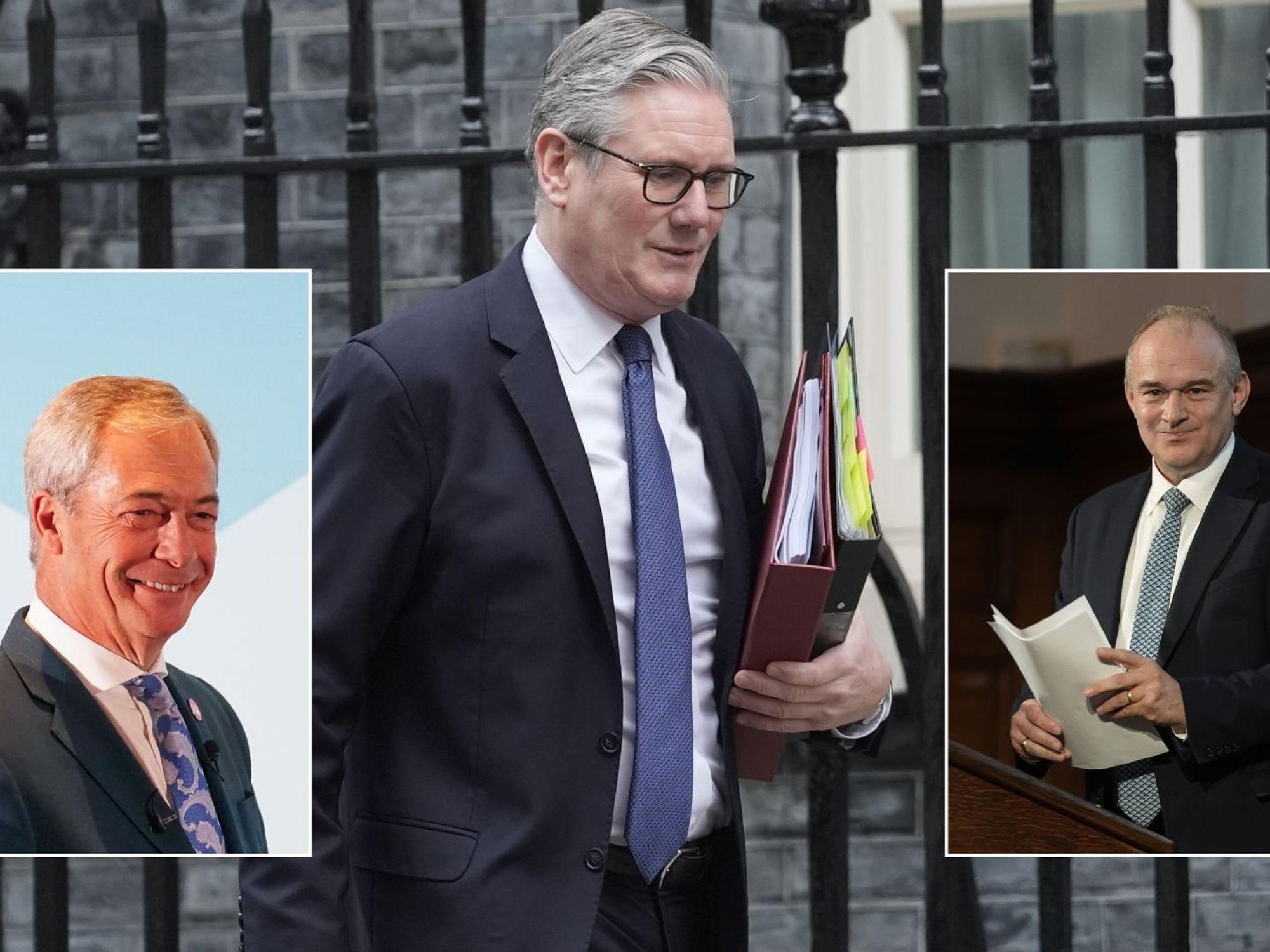Hydrogen cars 'have the potential to grow rapidly' as drivers call for more refuelling stations

Hydrogen vehicles are becoming a more popular option among UK drivers
| GETTY
Hydrogen fuel cell vehicles from Toyota have been seen across the summer at the Paris Olympics
Don't Miss
Most Read
Hydrogen vehicles could be a popular choice for many drivers if the refuelling infrastructure necessary was in place, based on new data.
Research has found that more than one in three drivers said they would choose a hydrogen or electric vehicle when choosing their next company car, with 22 per cent of these only considering hydrogen.
In comparison to a similar survey undertaken in 2021, there has been a jump in increase for both electric and hydrogen vehicles.
Three years ago, just 11 per cent would have considered hydrogen, while only 18 per cent were interested in electric vehicles, compared with 30 per cent this year.
Do you have a story you'd like to share? Get in touch by emailing motoring@gbnews.uk

Drivers said they would be more likely to switch to a hydrogen vehicle if the infrastructure was better
| GETTYInterestingly, half of the survey respondents said they would also consider biodiesel if options were readily available thanks to lower costs.
Other fuel types were considered namely compressed natural gas (37 per cent), compressed air (30 per cent), ethanol (29 per cent), or liquified petroleum gas (23 per cent).
The survey, from Venson Automotive Solutions, also found that a quarter of drivers would remain loyal to petrol or diesel vehicles.
Simon Staton, client management director at Venson Automotive Solutions, said: "While hydrogen-powered cars may be relatively rare on UK roads today, they have the potential to grow rapidly in popularity in the next few years, if the refuelling infrastructure can be suitably extended.
"Interestingly, 62 per cent of respondents believe vehicle manufacturers should be investing the same amount of time and money in bringing hydrogen cars to UK roads, as they are with electric cars."
According to the Government's Hydrogen Strategy Delivery Update from December 2023, there are approximately 265 hydrogen fuel cell vehicles on the road across the UK, consisting of buses, HGVs, vans and cars.
There are also eight publicly accessible hydrogen refuelling stations around the country, with a further four stations planned, which are set to be backed by Government and private funding.
There are just two hydrogen fuel cell passenger cars on the market from major brands, namely the Hyundai NEXO and the Toyota Mirai.
The Hyundai NEXO is a rarer sight on roads, while Toyota is pushing for the rollout of hydrogen vehicles, notably having the Mirai as the official vehicle of the 2024 Paris Olympic Games this summer.
For the Olympics and Paralympics, Toyota has provided more than 500 hydrogen fuel cell Mirai cars, which will join the existing Paris hydrogen taxi fleet after the conclusion of the Games.
At the Goodwood Festival of Speed last year, acting legend and motorsport fan Rowan Atkinson used a hydrogen-powered three-cylinder, 1.6-litre turbocharged engine Toyota GR Yaris.
He noted how the Yaris has a changed engine management system by directly injecting hydrogen into an internal combustion engine rather than the vehicle being a hydrogen fuel cell.
LATEST DEVELOPMENTS:
- Drivers urged to avoid buying one specific car model as it's 'always in the garage' with huge repair costs
- Millions of Britons at risk of 'nasty' parking scams as drivers face 'hefty fine from the council'
- Major car brand likely to delay huge electric vehicle project despite plans for a cheap £17,000 EV
 The hydrogen fuel cell Toyota Mirai is the official vehicle of the Summer Olympics and Paralympics | TOYOTA
The hydrogen fuel cell Toyota Mirai is the official vehicle of the Summer Olympics and Paralympics | TOYOTA The Mr Bean star added: "It's sort of the direction that Toyota feel that motorsports can go, one of the many ways in order to retain the internal combustion engine which is what F1 is trying to do from 2026.
"It's going to be a hybrid internal combustion engine using synthetic fuel, so this is another way of going to use hydrogen, so you've still got the emotion from motorsport."
Atkinson has frequently voiced his support for synthetic fuels and alternative fuel cells to achieve decarbonisation in transport alongside supporting the transition to electric vehicles.










